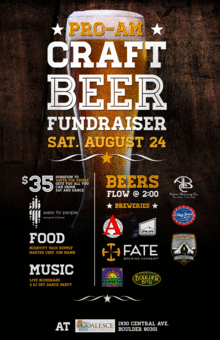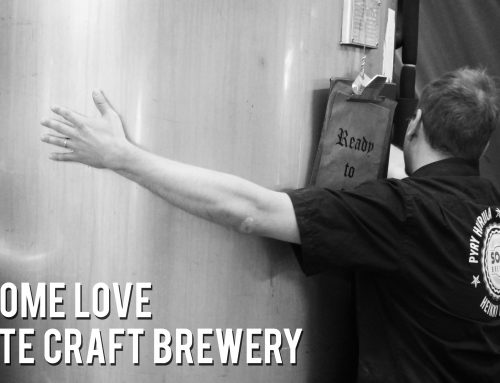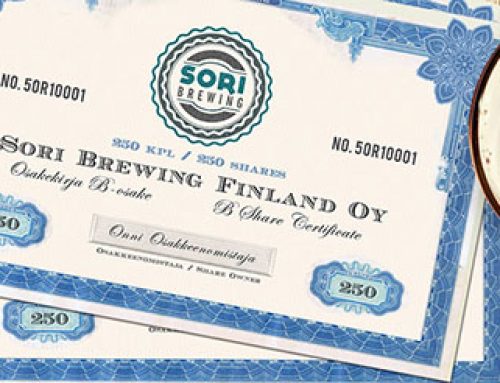Headlines are declaring that the craft beer industry is now booming. What does it really mean? As many in the industry know, it doesn’t mean that total beer consumption is up – actually it’s vice versa. When craft beer skyrockets, it does it at on bulky beers expense. The total beer consumption is declining in the developed countries. People are using their money to drink better beer in smaller quantities. It is like switching from mac n’ cheese to a steak. Here is something that the growing craft beer industry has done, and why states and governments should support the movement.
1. Craft beer is a way to more civilized drinking habits
As we know, when people change their regular bulk beer to a craft beer, they usually get more interested in what they are drinking. People seek for information, pay attention to ingredients and may even attend in tasting events. Marketing is now more about sharing information than just building a brand image. People are not buying cheap tricks any more – big bulk breweries know this already, since their sales plummet. The more you can get relevant information, the more you will pay attention to details and what kind of beer is in your glass. Less information means that lower quality beer can sell better.

Scott Bell harvests cones from the UBC Farm hopyard (Photo: UBC)
2. Craft beer industry revives buildings and neighborhoods – and even agriculture
In most cases, craft breweries are not established in the most popular places in city centers or along the big highways. It’s common that breweries are established in smaller towns or areas that have cheaper buildings and rents. By doing this, breweries bring jobs and people to areas that are probably losing their appeal, or even abandoned.
Craft breweries rarely build new premises for their breweries – actually many prefer to use old buildings that have stories to tell. In many cases, these buildings can be even abandoned or be in a use that does no good to the building. Craft breweries often cherish their surroundings and history because nothing supports a craft beer brand like an old building that has its own story to tell.
That’s not all! Because craft beer industry has made the demand of hops to go through the roof, there is a constant need for new hop farmers. One acre is worth of $12.000-15.000 per year. As you can see, craft beer revivals dead industries back to life and bring jobs to the people. Who knew that farming could still rise in developed countries?
3. Craft beer creates a lot of jobs = more tax revenue
Craft breweries require all sorts of workforce, from packaging to tax professionals and from brewers to marketers. Of course, many craft breweries start small and in many cases never grow or want to grow big. However, it can happen – and like in San Diego, craft beer can create a huge amount of jobs. Craft breweries can employ different kinds of people, from young to old and from all social classes. Since craft breweries love personality and off centered people, they can employ people that would normally have difficulties to find a job. The more craft breweries employ, the more they make new happy taxpayers and help to revive the economy in overall.
4. Craft beer declines total consumption
When people stop drinking cheap, bulky beer and move to the more expensive craft beer, they don’t really need to use more money in beer drinking. They just drink less. That is one reason why overall beer consumption is down and craft beer is up.

4th Annual Pro-Am Craft Beer Fundraiser poster
5. Craft beer brings social good around it
As being said, craft beer creates jobs, revives neighborhoods and teaches people to be more responsible with their drinking habits. But that’s not all. The community and social interaction are a huge part of why craft beer is succeeding. In many cases, craft brewers don’t even consider their brewery as a business. They see it more of an open social community that makes profit. Because it is all about social interactions, craft brewers are keen to make socially recognized good deeds and help people around them. There have been fundraisers for Boston terror victims, ALS disease research and families that have sent their men to a war. When you take a good look of these, they are not another marketing gimmick, but the real deal.
How states and governments could benefit from this boom?
The public enemy number one against civilized drinking habits is to ban information (as known as marketing), as Finland and some other governments have done. Not all information is marketing and of course, marketing is certainly not always good information. However, it’s the most common and the easiest way to raise the knowledge.
Secondly, governments should react more positively to small businesses and craft breweries. For instance, in Finland we have ridiculous laws that punish the entrepreneurs before anything has happened and create barriers of entry to many industries. Then only the biggest, most boring and probably foreign owned multinational companies can survive.
We understand that the government’s and the authorities’ responsibility is to protect the citizens from possible risks. However, now it feels like the bureaucrats are creating new laws and regulations just because they have nothing better to do. Even the huge financial crisis has not changed a thing. Common sense and giving consumers some freedom to take own responsibility have been lost somewhere along the road.
Sources:
Huffington Post: Craft Breweries Revive Urban Neighborhoods, Allow Small Businesses To Thrive
Wall Street Journal: Lower Taxes Tapped a Beer Revolution
California Craft Brewing Industry: An Economic Impact Study
Mercury News: Oakland: Craft beer trend helps rebuild neighborhoods
The Columbian: Craft brewers raise money for ALS
Boston.com: Breweries combine to raise money for Boston Marathon victims
Hops for Heroes
Craft beer boom has state farmers growing hops



